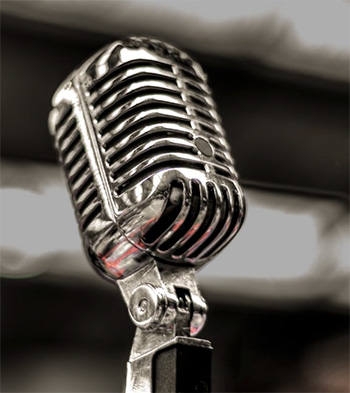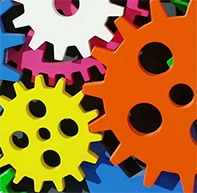Tip #937: Tips to Great Interviews
… for Random Weirdness
Tip #937: Tips to Great Interviews
Larry Jordan – LarryJordan.com
Interviews are directed conversations to get useful content.


Technology is important, but the reason people are watching your video is the content, not the tech.
A while ago, I wrote an article on interviews and asking the right questions. An interview is not a conversation; it is a directed conversation to get useful content.
Here are some ideas to consider:
- Plan. Planning is not as sexy as production, but it is just as essential. When time is limited, you can’t afford to wander around trying to discover your subject during an interview. You need to have a goal in mind.
- Guests. Before the guest enters the set, I’ve worked out camera angles, framing, lighting, and mic issues with the crew. Once the guest enters, direct your full attention to them. As the interviewer, you need to build a relationship, a rapport, with the guest from the moment they walk in.
- Get Started. Asking questions is part art and part science. The art is really listening to what your guest is saying. Actors call this being “in the moment;” focusing intently on your guest and what they are saying. The science is in how you construct your questions.
For a fifteen minute interview, I try to create about 18 questions. My general assumption is that it takes about a minute for a guest to answer one question. For live shows I use all of each answer. For taped shows, I select the best parts.
- Ask Questions. For me, an interview has an emotional arc, the same as a drama. I start with easy questions – “Tell me about your company” – then move into the WHAT, WHERE, and HOW questions. These set up a problem and what was done to solve it. Finally, I wrap up with WHY questions. These always elicit emotional responses.
The secret code between my camera operator and me is that What/Where/How questions are shot on a medium close-up. But with Why questions the camera needs to zoom into a close-up, because Why questions bring emotions near the surface, where the camera can see them. Close-ups amplify emotions.
- Questions I Try Not To Ask. Anything that can be answered with a Yes or No.
- When the Interview is over. Just before calling “Cut!,” but when all my questions are done, I always ask the guest: “Is there a question I should have asked that I did not?” This gives them a chance to reflect to see if they want to add, or modify anything. About a quarter of the time, the guest will suggest a great question that I hadn’t thought of.
When the interview is over, the very first words should be to the guest. Even if they were a train-wreck, congratulate them on doing a great job.
While there is a fine line between flattery and down-right lying, telling a guest they were terrible won’t improve your interview. So, you might as well make them feel good as they leave the set.
EXTRA CREDIT
Here’s the link to the full article.


Leave a Reply
Want to join the discussion?Feel free to contribute!